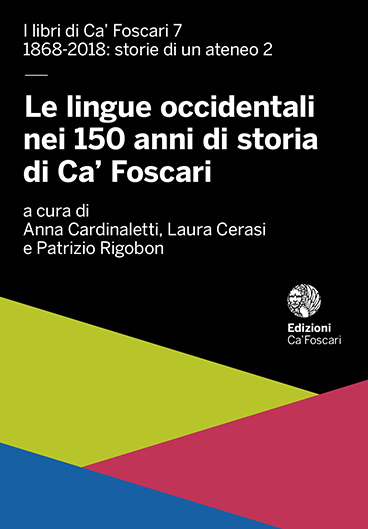- search 252 views
- file_download 9 download
- keyboard_capslock metadata
-
mark_email_readIscriviti alla newsletter
Notizie sull’insegnamento di lingua, letteratura e cultura romena presso la Regia Scuola Superiore di Commercio, la Facoltà di Economia e Commercio e l’Università Ca’ Foscari Venezia
abstract
The aim of this research is to retrace the evolution of the academic study of Romanian at Ca’ Foscari University, from its introduction in the second half of the 19th century to the present day, introducing a series of unpublished documents. The study highlights the most important periods for the above-mentioned course: 1883/84 – 1891 when Professor Marco Antonio Canini founded the Romanian language and culture course at Regia Scuola Superiore di Commercio di Venezia, the 1940s when Anna Potop was appointed Professor of Romanian at the Istituto Universitario di Economia e di Commercio, the 1970s when Sorin Stati coordinated courses of Romanian language and culture and ending with the late 1990s and 2000s when the courses were reinstated due to the collaboration between the Istituto Romeno di Cultura e Ricerca Umanistica di Venezia and Ca’ Foscari University.
Keywords: Stati • Canini • Potop • Romanian




